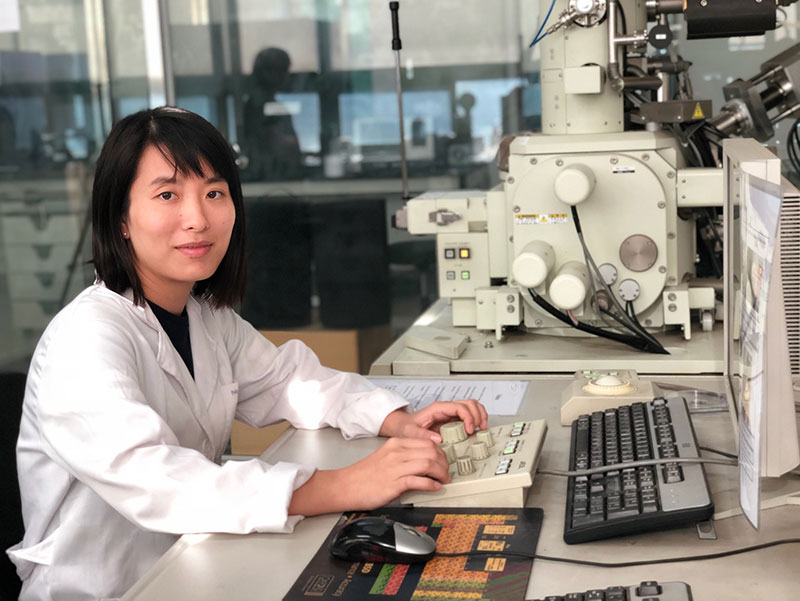
Vietnamese scientist at Gachon Tran Thi Nhu Hoa
Hoa is well known in the scientists’ community as the author of research on blood-based immunoassay of tau proteins for early diagnosis of Alzheimer's disease using surface plasmon resonance (SPR) fiber sensors.
Alzheimer's is a disease of the brain that affects memory, thinking and behavior. It is not the most common form of memory impairment.
Hoa and her co-workers have been successful with the fluorescence enhancement technique with surface plasmon coupled emission (SPCE) which can easily detect the minimal concentration of double-stranded DNA (dsDNA) (~ 400 fg/μL) compared to other techniques (ELISA, Electrical detection and Aptamer).
|
Hoa is well known in the scientists’ community as the author of research on blood-based immunoassay of tau proteins for early diagnosis of Alzheimer's disease using surface plasmon resonance (SPR) fiber sensors. |
This is the achievement of a long research process, from the days at university to doctoral study. She has been steadfast in applying basic sciences (physics, mathematics, computer science) and the interdisciplinary synthesis of optical-laser physics, materials, electronics, photonic biology and biomedical engineering physics to fabricate and design devices and synthetic materials utilizing the diversity of optical lasers in medical technology.
In childhood, Hoa dreamed of becoming a mathematics teacher and wanted to follow the family’s tradition.
However, when studying material science and technology at university, she was inspired by lecturers at the HCMC University of Natural Sciences and began working at a laboratory when she became a third-year student. Hoa spends most of her time in the lab.
“I love math and I have had an aptitude for math since childhood. The subjects I studied were all related to math and they led me to science,” she said.
In 2015, she received a scholarship to become a doctoral student in South Korea.
Why South Korea? “I wanted a research direction which I could continue to follow later when I return to Vietnam,” Hoa said.
South Korea is a developed country in education, where the learning environment is comparable to other developed countries such as Japan, Hong Kong, the UK and Canada.
Asked about her plans for the future, Hoa affirmed she will come back to Vietnam, and together with other scientists, use new technologies in the biomedical field.
Among the scientists for potential cooperation, Hoa mentioned the research team headed by Dr Truong Van Chuong who successfully invented ultrasound transmitting devices that are very cheap compared with imports, and the research team headed by Phan Bach Thang from the Center for Innovative Materials and Architectures (INOMAR) at the HCMC National University.
RELATED NEWS
Scientist honoured for his contributions to marine research
Female scientist helps create camera for space satellite
Mai Chi